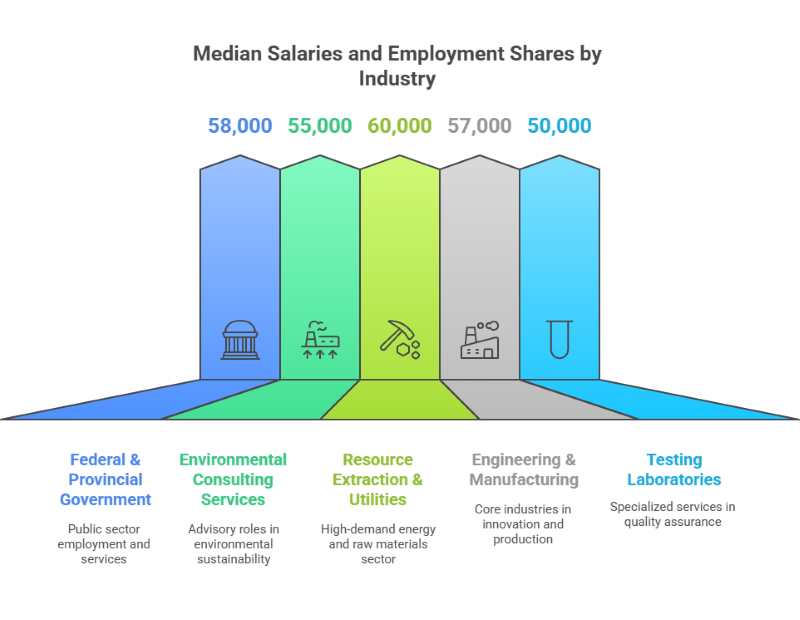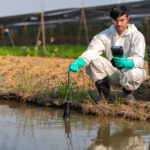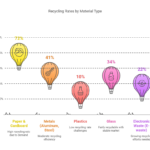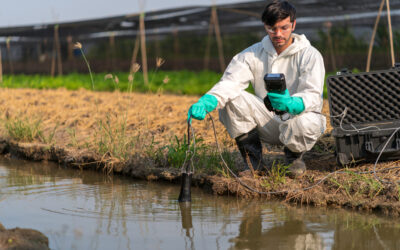Environmental challenges such as climate change, pollution, and resource depletion are increasingly urgent in Canada and around the world. As a result, there is growing demand for professionals who can monitor, assess, and manage ecological risks. One critical role in this field is the Environmental Technician, a specialized professional who supports environmental scientists, engineers, and other stakeholders in researching contamination, waste management, and sustainability strategies.
With industries facing stricter provincial and federal regulations—and with organizations prioritizing sustainability—employment prospects for Environmental Technicians in Canada continue to rise. This article provides a comprehensive overview of their responsibilities, required skills, current industry trends, and Canadian job growth statistics.
Key Responsibilities of an Environmental Technician
Environmental Technicians work in diverse settings, including federal and provincial government departments, private corporations, and environmental consulting firms. Their primary responsibilities include:
- Sample Collection and Testing
- Gathering soil, water, and air samples to test for pollutants and contaminants.
- Monitoring chemical, biological, and physical parameters in lab or field settings.
- Compliance Monitoring
- Ensuring organizations meet environmental regulations set by Environment and Climate Change Canada (ECCC) and other relevant authorities.
- Conducting inspections to verify compliance with Canadian Environmental Protection Act (CEPA) guidelines.
- Data Analysis and Reporting
- Using laboratory equipment and software (like GIS tools) to analyze environmental data.
- Preparing technical reports for regulatory bodies, company leadership, and other decision-makers.
- Hazardous Waste Management
- Assisting in the safe handling, treatment, and disposal of hazardous materials.
- Overseeing cleanup operations in case of spills or contamination events.
- Equipment Operation and Maintenance
- Operating specialized instruments such as air quality sensors, water-testing devices, and other analytical tools.
- Performing routine maintenance and troubleshooting of testing equipment.
- Emergency Response
- Supporting environmental scientists and emergency response teams during accidents involving chemical spills, industrial incidents, or environmental disasters.
Typical Work Environments
Environmental Technicians in Canada can operate in multiple environments:
- Laboratories – Conducting sample testing and data analysis.
- Fieldwork – Performing on-site assessments, sample collection, and real-time monitoring.
- Offices – Analyzing data, writing reports, and coordinating with interdisciplinary teams or government agencies.
According to the Government of Canada’s Job Bank, Environmental Technicians (often classified under the National Occupational Classification [NOC] codes such as 2212 or 2221, depending on specific roles) can work in various industries ranging from government services to private consulting and resource extraction.

Industry Trends and Job Market Statistics in Canada
Job Growth and Demand
- Steady Growth
Many provinces across Canada project steady or above-average growth for environmental occupations in the coming years. This growth is driven by tightening regulations, public demand for sustainability, and corporate responsibility initiatives. - Expanded Regulations
Increased enforcement of the Canadian Environmental Protection Act (CEPA) and provincial regulations in manufacturing, oil and gas, and waste management propels demand for skilled environmental professionals. - Climate Change and Urbanization
Rapid urban development, climate change adaptation, and infrastructure projects require ongoing environmental assessments, further boosting the need for Environmental Technicians.
The Government of Canada’s Job Bank forecasts that job prospects for qualified Environmental Technicians will remain good in many regions between 2022 and 2032.
Salary Insights
While actual wages vary by province, sector, and experience, below is a general overview of Environmental Technician salaries in Canada. According to Job Bank data and industry reports:
- Median Annual Salary: Around $50,000 – $60,000
- Entry-Level Positions: Start in the $40,000 – $45,000 range
- Experienced Technicians: Can earn $70,000 or higher, especially in specialized industries such as oil and gas, resource extraction, or federal government roles
Below is an illustrative table showing approximate median salaries in different sectors:
| Industry | Median Salary (2023) | Approx. Employment Share |
| Federal & Provincial Government | $58,000 | 30% |
| Environmental Consulting Services | $55,000 | 25% |
| Resource Extraction & Utilities | $60,000 | 20% |
| Engineering & Manufacturing | $57,000 | 15% |
| Testing Laboratories | $50,000 | 10% |
Please note these figures are approximate and can fluctuate based on location, certifications, and the complexity of the role.
Regional Demand
- Highest Employment Levels: Provinces like Ontario, Alberta, and British Columbia often have the greatest demand due to industrial activities, resource extraction, and urban development.
- High-Paying Regions: Roles in Alberta, Saskatchewan, and remote areas (e.g., Northern mining regions) may offer higher compensation to attract skilled technicians willing to relocate or work in challenging conditions.
Skills and Educational Requirements
Education Pathways
- Associate or Bachelor’s Degree
An associate degree (college diploma) in environmental science, chemistry, or biology is often the minimum requirement. Many employers, however, prefer candidates with a bachelor’s degree in environmental science or related fields—particularly for roles involving complex data analysis, regulatory compliance, or leadership responsibilities. - Diploma and Certificate Programs
Canadian colleges and technical institutes offer environmental diploma programs that provide hands-on laboratory and fieldwork experience, aligning well with employers’ practical needs.

Certifications and Licensing
Certifications are not always mandatory but can significantly improve employability. Notable credentials include:
- Certified Environmental Practitioner (EPt or EP)
Offered by organizations like ECO Canada, indicating proficiency in environmental best practices. - HAZWOPER Training (equivalent Canadian health and safety training)
Beneficial for professionals working with hazardous materials or emergency response. - Valid Driver’s License
Often required, especially for fieldwork roles that involve regional travel.
Technical and Soft Skills
- Laboratory & Fieldwork Proficiency: Handling and analyzing water, air, and soil samples accurately.
- Data Interpretation: Knowledge of GIS, environmental modeling software, and statistical tools.
- Regulatory Knowledge: Familiarity with federal acts like CEPA and provincial/territorial regulations.
- Problem-Solving Abilities: Addressing contamination issues, compliance challenges, and emergency response scenarios.
- Attention to Detail: Ensuring data integrity and quality in reporting.
Hiring Considerations for Environmental Technicians in Canada
Why Environmental Technicians Are Crucial for Businesses
- Ensuring Regulatory Compliance: Preventing violations of CEPA or other environmental laws, thus avoiding fines and reputational damage.
- Supporting Sustainability Goals: Collecting and analyzing data to advance corporate sustainability initiatives like waste reduction and emissions management.
- Risk Management: Conducting thorough environmental assessments to identify and mitigate potential hazards.
- Enhancing Corporate Image: Demonstrating a commitment to environmental stewardship and social responsibility.
Skills and Qualifications That Companies Should Seek
- Technical Expertise and Certifications
- Proficiency in environmental sampling, lab testing, and data analysis.
- Familiarity with relevant environmental regulations and best practices.
- Formal certifications (e.g., ECO Canada’s EP designation) and relevant safety training.
- Soft Skills and Attributes
- Attention to Detail: Accurate sampling and thorough reporting are vital.
- Communication: Strong writing and presentation skills to liaise with various stakeholders.
- Adaptability: Willingness to learn about new regulations, technology, and field methods.
- Team Collaboration: Ability to work with engineers, scientists, project managers, and government inspectors.
Strategies for Attracting Top Environmental Technician Talent
- Targeted Job Boards and Professional Networks
- Post positions on niche Canadian job boards (e.g., ECO Canada, environmental associations) or leverage industry groups on LinkedIn.
- Showcase Sustainability and Innovation
- Emphasize your company’s green projects, ESG (Environmental, Social, Governance) commitments, and opportunities for innovation in job postings.
- Offer Competitive Salaries and Benefits
- Provide salary ranges that reflect the growing demand for environmental skills.
- Consider benefits like flexible work arrangements, health coverage, and professional development support.
- Establish Internships and Co-op Programs
- Collaborate with colleges and universities to create internship and co-op opportunities.
- Evaluate and mentor students or recent graduates, building a talent pipeline for future hires.
Maximizing the Value of Environmental Technicians in Your Organization
- Cross-Functional Integration
- Involve technicians in project planning, risk assessment, and regular audits.
- Collaborate with departments such as operations, safety, compliance, and facilities management.
- Ongoing Training and Certification
- Encourage continuous learning through workshops, seminars, and new certification programs.
- Keep skill sets aligned with emerging environmental technologies and ever-evolving regulations.
- Leverage Technology
- Use real-time monitoring devices, GIS tools, and data analytics platforms.
- Automate data collection to free technicians for higher-level tasks like trend analysis and strategic planning.
- Promote Innovation in Sustainability Projects
- Allow technicians to propose and pilot initiatives in waste management, energy efficiency, and pollution prevention.
- Incorporate their input early in project lifecycles for more sustainable outcomes.

Challenges in Hiring Environmental Technicians and How to Overcome Them
- Limited Local Talent Pool: Remote work or relocation assistance may be necessary to attract skilled technicians, especially in rural or remote areas.
- Evolving Regulations and Technology: Provide clear expectations and invest in ongoing professional development to keep teams current.
- High Competition: Different industries (e.g., mining, construction, oil and gas) compete for top talent. Stand out by offering unique career development pathways and sustainability-focused projects.
Emerging Trends in Canadian Environmental Technology
- AI and Machine Learning for Monitoring
- Automated sensors and predictive analytics to detect environmental hazards in real-time.
- Growth of Renewable Energy
- Expanding roles in solar, wind, and hydro projects, where technicians evaluate and mitigate ecological impacts.
- Enhanced Environmental Regulations
- Provinces continually updating policies, increasing the need for vigilant compliance and specialized environmental roles.
- Circular Economy and Advanced Waste Management
- Emphasis on plastics recycling, electronic waste solutions, and innovative composting techniques.
- Climate Change Adaptation
- Flood mitigation, wildfire prevention, and infrastructure resilience projects creating additional demand for technical support.
Career Advancement Opportunities
Environmental Technicians have numerous pathways to advance their careers in Canada:
- Environmental Scientist or Technologist
- Pursue further education (e.g., bachelor’s or master’s degree) for research or policy roles.
- Industrial Hygiene or Health & Safety
- Specialize in workplace safety, ensuring compliance with occupational health regulations and environmental standards.
- Environmental Engineering
- With an engineering degree, work on designing pollution control systems, water treatment facilities, and renewable energy solutions.
- Project Management or Consulting
- Move into supervisory or consulting roles, advising organizations on complex environmental challenges and strategic sustainability planning.
Frequently Asked Questions (FAQ)
- What’s the difference between an Environmental Technician and an Environmental Technologist in Canada?
- Environmental Technician roles typically focus on data collection, sample analysis, and fieldwork. Environmental Technologists often have more advanced academic credentials and may take on project planning, complex data interpretation, and team leadership.
- Do Environmental Technicians need licensing in Canada?
- While there isn’t a strict federal license specifically for Environmental Technicians, many employers value certifications like ECO Canada’s Environmental Professional (EP) designation or relevant health and safety training.
- How do salaries vary between provinces?
- Salaries can be higher in provinces like Alberta and in remote areas where there is significant resource extraction or fewer available professionals. Ontario and BC also offer competitive wages due to their diverse industries and large urban centres.
- Is this job physically demanding?
- Fieldwork can involve hiking, climbing, and working in varying weather conditions. Technicians should be prepared for both outdoor activities and indoor lab or office tasks.
- Are there opportunities to work remotely?
- Yes. Many tasks—such as data analysis and report writing—can be done remotely. However, sample collection and on-site inspections require in-person presence.
- What educational background is most common among Environmental Technicians?
- College diplomas or bachelor’s degrees in environmental science, chemistry, biology, or a related field. Practical lab and field experience is highly valued.
- How do Environmental Technicians contribute to climate change initiatives?
- They collect data on emissions, analyze environmental impact, and assist in creating mitigation or adaptation strategies. Their work informs policies and corporate decisions on reducing carbon footprints.
- Is bilingualism (English/French) important for this role in Canada?
- It can be an asset, especially in federal government positions or roles located in officially bilingual areas (e.g., parts of Ontario, New Brunswick, and Quebec). However, the requirement depends on the employer and specific region.
- What type of companies hire Environmental Technicians?
- A wide array: environmental consulting firms, government agencies, resource extraction companies, manufacturing plants, and engineering consultancies. Any organization needing environmental monitoring and regulatory compliance expertise may employ them.
- How do I stay updated on regulatory changes?
- Regularly check updates from Environment and Climate Change Canada (ECCC), provincial ministries of the environment, and credible professional associations (e.g., ECO Canada).
Temporary Environmental Technicians from RSS Staffing Inc
For organizations across Canada seeking temporary Environmental Technicians, RSS Staffing Inc offers specialized staffing solutions. Whether you need short-term field support or assistance with ongoing environmental compliance projects, our team can connect you with qualified technicians who have the necessary training and certifications to meet your operational requirements.
Final Thoughts
Environmental Technicians serve a critical function in safeguarding Canada’s ecosystems and ensuring businesses remain compliant with stringent regulations. Their expertise in sampling, data analysis, waste management, and emergency response forms the backbone of many sustainability initiatives. As environmental challenges become more pressing, investing in skilled Environmental Technicians will be crucial for organizations aiming to operate responsibly and effectively.
By understanding the responsibilities, industry trends, and educational pathways for Environmental Technicians in Canada, both job seekers and employers can make informed decisions about pursuing and filling these essential roles. As Canadian businesses and government bodies continue to emphasize sustainable practices, the demand for capable Environmental Technicians is projected to stay robust in the foreseeable future. For companies that need temporary staffing support, RSS Staffing Inc stands ready to fulfill those needs and ensure projects run smoothly.
References and Resources
- Government of Canada’s Job Bank
- ECO Canada
- Statistics Canada
- Environment and Climate Change Canada (ECCC)
Canadian Environmental Protection Act (CEPA)








